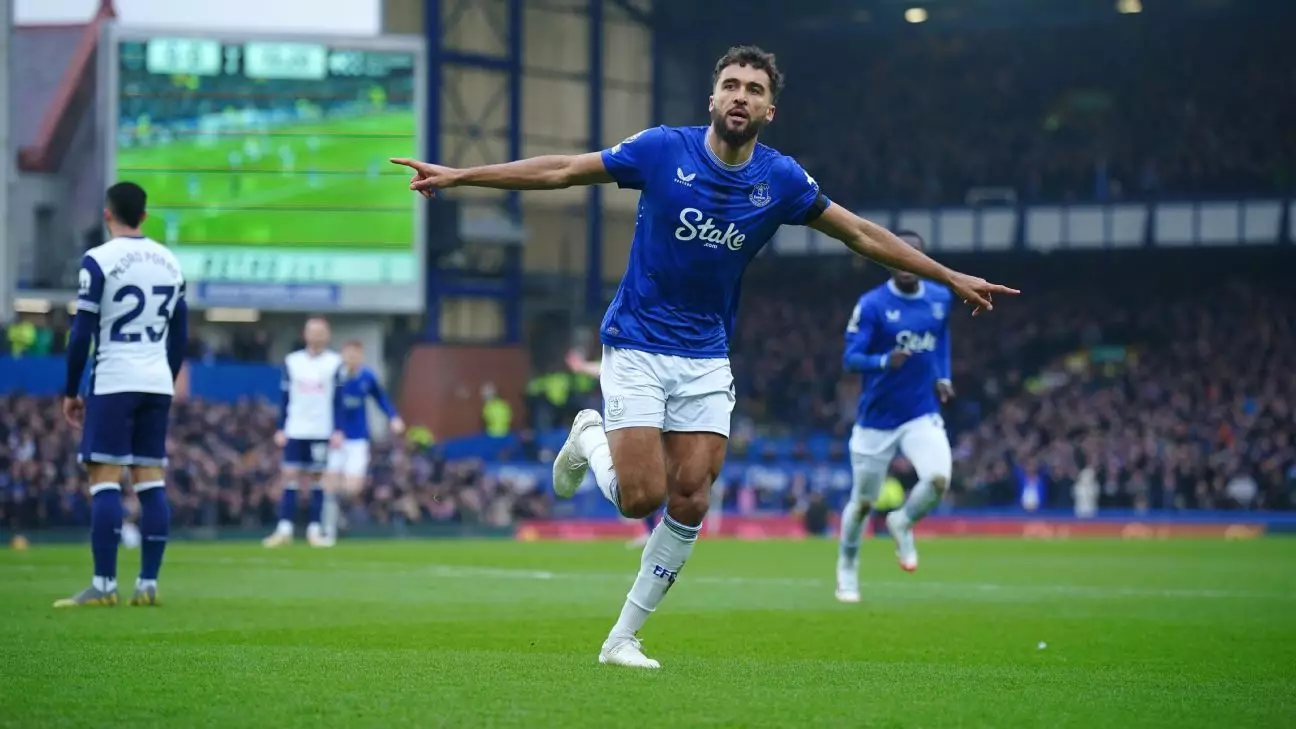Manchester United’s recent pursuits highlight a club eager to recalibrate its attacking options while also addressing the squad’s long-term sustainability. The club’s interest in Dominic Calvert-Lewin signals a desire to secure a proven Premier League scorer who encompasses grit and goal-scoring instinct. Calvert-Lewin’s move—possibly on a free transfer following Everton’s decision not to renew his contract—indicates Manchester United’s strategic flexibility. At 28, the England international remains in his prime, despite recurring injury setbacks. United’s interest underscores a broader plan: blending experienced Premier League talent with innovative signing strategies that promise both immediate impact and future resilience.
This move also reflects a club that recognizes the importance of squad depth and versatility. Calvert-Lewin’s all-around game, combining physicality and poacher’s instinct, could serve as a catalyst for United’s attacking fluidity. Their willingness to pursue him on a free indicates an astute financial approach—maximizing value while minimizing expenditure. This signals a shift in transfer philosophy: focusing on quality and compatibility over high transfer fees and inflated wages. It also suggests a broader vision to integrate seasoned players who can mentor emerging talents, fostering a culture of continuous growth.
Arsenal’s Bold Maneuvering to Secure Gyökeres
Arsenal’s pursuit of Viktor Gyökeres demonstrates their readiness to take daring steps to secure the talents they perceive as vital to their evolutionary ambitions. The Swedish striker’s situation at Sporting CP—threatening strike action—attests to a player determined to reach his dream club. Arsenal’s hope that a potential holdout could pressure Sporting to accept a lower fee is both a calculated gamble and a testament to their strategic patience.
This scenario exemplifies a broader trend of clubs leveraging player agency and transfer leverage to negotiate advantageous terms. Arsenal’s confidence hinges on the assumption that Gyökeres’s desire to join their ranks outweighs Sporting’s financial considerations. Such a move, if successful, would signal Arsenal’s willingness to challenge traditional transfer paradigms—prioritizing player ambition and psychological readiness to adapt to the Premier League. This approach underscores their intent to assemble a squad that embodies both talent and a sense of purpose, aligning with their aspirational mentality.
South American Ambitions and the Global Transfer Market
The imminent signing of Mikey Johnston by Flamengo reflects the increasingly interconnected nature of global football. For West Bromwich Albion’s winger to make a move to Brazil at this stage of his career demonstrates the appeal of South American tournaments and leagues to European players seeking new challenges or a fresh environment. The agreed fee of £5 million and Johnston’s planned discussions about personal terms suggest a pragmatic approach: clubs striking deals that benefit financially while players weigh the allure of playing in a continent rich in footballing culture.
Meanwhile, Besiktas’s loan acquisition of Jens Cajuste from Napoli exemplifies Turkey’s strategic position as a hub for tactical talent swaps. Loan moves like Cajuste’s are often designed as testing grounds for potential permanent deals, offering clubs an economical way to evaluate players’ fit in their tactical systems. Such arrangements underscore a broader movement toward flexible transfer strategies—maximizing short-term utility while keeping the door open for long-term investments.
Strategic Depth at Arsenal with Zubimendi
The completion of Martín Zubimendi’s transfer from Real Sociedad to Arsenal exemplifies a club that is not only aiming for immediate upgrades but also investing in midfield stability for the future. Triggering his hefty €60 million release clause reflects Arsenal’s financial confidence and ruthlessness when it comes to acquiring star quality. Zubimendi’s arrival signifies a strategic step toward consolidating their core with a versatile midfielder capable of anchoring play and dictating tempo.
This move reveals Arsenal’s ambitions to evolve beyond their previous limitations and become a competitive force across multiple tournaments. They are clearly prioritizing talent that can develop into a cornerstone of their tactical setup and bring a blend of technical ability and resilience. Arsenal’s willingness to pay a significant release clause demonstrates a readiness to invest heavily in their vision of sustained success—a philosophy that will likely shape their transfer strategies in the coming seasons.
—
The current transfer landscape signals a seismic shift in how top clubs approach building their squads: prioritizing strategic flexibility, leveraging player ambition, and making calculated financial commitments. These moves are not just about immediate fixes, but about laying foundations for long-term excellence. Clubs are increasingly viewing their transfer windows as opportunities not just to fill gaps, but to innovate and redefine their footballing identities.

Leave a Reply